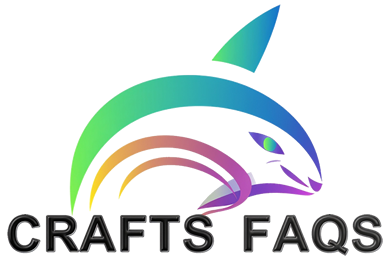
Staying Productive Despite Distractions and Multitasking
Nobody’s checking my caffeine levels but I know I’m doomed if my phone buzzes twice. Tight deadline, Slack ping, someone blasting Spandau Ballet in the next room, and suddenly I’m rewriting code that was fine an hour ago. Multitasking is basically my default—by noon, any hope of a perfect Pomodoro is dead.
Minimizing Distractions Effectively
Phones, emails, that stupid blinking mute icon—one notification and I’m toast. Supposedly, it takes 23 minutes to recover from an interruption (Toggl says so). That’s an entire TV episode lost because I couldn’t mute WhatsApp or hit Focus Mode. And nobody warns you how impossible it is to keep a website blocker running when the team channel is always pinging.
I’ve tried tracking my energy or whatever, but I just end up lying to myself. So now I stick a post-it that says “IGNORE. 10 MIN.” on my monitor. Physical clutter? I sweep all the junk into a box under my desk every Friday. If it’s really loud (like at last year’s hackathon, when some guy’s keyboard sounded like a woodpecker), the only thing that works is noise-canceling headphones and white noise. Not elegant, but I got the job done.
Multitasking Strategies That Work
Every productivity blog says “single-task,” but when you’re juggling Figma, Jenkins, and Google Docs, that’s laughable. I group browser tabs by project so I don’t end up watching YouTube. If I need to document and code at the same time, I just use Notion’s speech-to-text—even if it’s clumsy, it saves me from window-flipping.
Saw a Stack Overflow comment once: “Multitasking is how you get two things half-done by tomorrow instead of one thing done today.” True, but sometimes 60% on two things is better than nothing. I timebox with weird intervals—14 or 17 minutes—just to break up the monotony and see if I’m actually getting anywhere. Messier the day, the more I break it down. No bullet journal, no magic system, just organized chaos and a stubborn habit of finishing.
Managing Stress and Maintaining Work-Life Balance
What still drives me nuts? The second you look away, stress multiplies like someone left the glue gun plugged in—smoke and all. There’s no magic trick for shutting off at 6:01pm or pretending your inbox doesn’t exist, but boundaries and mindfulness are more than buzzwords. And honestly, if anyone says they’re thriving without a support system, they’re lying or delusional.
Mindfulness Practices for Makers
So, yeah, mindfulness. That word gets tossed around like it’s some magic fix. I’m staring at my bench, wires everywhere, and the only “practice” I’m doing is breathing so I don’t throw my soldering iron across the room. Sixty seconds with my eyes shut—supposedly that’s what leaders are supposed to model? (Thanks, Wellable blog, for that gem.) I mean, my hands hurt, but I do those inhale-four, hold-seven, exhale-eight breathing things. Therapist’s orders. Sometimes it helps, sometimes I just get dizzy.
Meditation apps? Meh. I’ve downloaded, deleted, and reinstalled Calm and Insight Timer more times than I want to admit. Honestly, I focus way better if I’m messing with something—stress ball, old resistor, whatever’s within reach. There’s this study—Lisa Feldman Barrett, I think—about how your body clocks stress before your brain does. Wild stuff, but also, yeah, no kidding? I still keep a fidget nearby. None of this stops the deadlines from creeping up, but maybe I freak out a little less. If you’re into grounding mats or essential oils, go for it, but my cats just treat them like new toys.
Building a Healthy Work-Life Balance
I’ve tried every “boundary” hack you can think of—noise-canceling headphones, fake calendar events, that whole “set your Slack to away” move. Still got pinged at 11pm for a bug fix last week. I read this teambuilding.com survey (2024, I think?)—63% of remote makers say hybrid work made it harder to keep work and life separate. Can confirm. My manager says, “Work smarter!” but never says how to make people stop messaging me after midnight.
What actually sticks? Dumb little routines. Door shut, lights set to “warm pink” (I don’t know, it feels less like a dentist’s office), sometimes I just unplug everything so I can’t get sucked back in. Some people love Pomodoro timers. I need something that literally yells at me. Micro-walks, texting a friend, bothering my dog—those help way more than the vague “balance” thing. Employee assistance programs? Tried them. Helped a bit with burnout, but didn’t stop the Slack pings.
Leaning on Your Support System
I thought “support system” meant texting other makers for last-minute parts, but apparently, it’s bigger than that. Sure, I’ll message Sarah for Arduino code when I’m panicking, but honestly, if my partner didn’t order takeout when I forget to eat, I’d probably just pass out. If you’re solo, find a local meetup or an online forum. People love to swap horror stories about soldering burns and missing birthdays.
Tangent: I read somewhere (Work Life Balance magazine, May 2024? Maybe?) that 72% of makers feel less alone after a group chat vent. I forget that constantly. Support isn’t just about who’ll spot you a resistor; it’s people who remind you to eat and listen to you rant about your day. Just, uh, don’t use family group chats for project complaints unless you want a flood of GIFs and reminders about that time you fried a circuit at Thanksgiving.
Optimizing Development Environments for Speed
You know what I never plan for? The hours wasted flipping through browser tabs and fighting with build errors. Anything that saves me even five minutes on setup is worth it. If I have to hunt down a config file again, I’m deleting half my toolchain, I swear.
Efficient Software Development Setups
Nobody ever says it, but the “fancy hardware” isn’t what makes you fast. Docker? Yeah, a junior dev wiped out all our images with one typo. No backup. Now we run everything locally, SSDs only. But it’s the dumb little things—dotfiles, Chocolatey scripts—that actually save time. StackOverflow says “simple scripts” boost productivity by 25%. Maybe. I just copy whatever worked last time.
It’s always the little stuff—like Windows Defender tanking Visual Studio builds. There’s a Medium post about it, total nightmare. I’ve run Windows updates during a sprint. Never again. Now I exclude devenv.exe, node.exe, all the stuff that doesn’t need scanning. And people still skip environment reviews for months, then end up debugging PATH issues at 2am. Every. Single. Time.
Leveraging Tools for Faster Project Completion
VS Code extensions, zsh aliases, FiraCode fonts—just add them, don’t overthink it. Takes less time than explaining why you missed a deadline. But don’t get too attached to any one tool. They’ll betray you during upgrades. Trust me. GitHub Copilot gave me three fixes last week—two worked, one nuked my whole test suite. Lesson: AI is backup, not a crutch.
Atlassian’s Gantt chart says most delays are from lost setup or miscommunication. I use Notion for kanban, half my team is still arguing in Slack about Python vs Node. Automate boring stuff—auto-formatters, pre-commit hooks, linting. No one wants to debate tabs vs spaces again. My friend loves JetBrains Fleet. I’m a tmux person. If it breaks, it’s probably my fault, but at least I can fix it.



